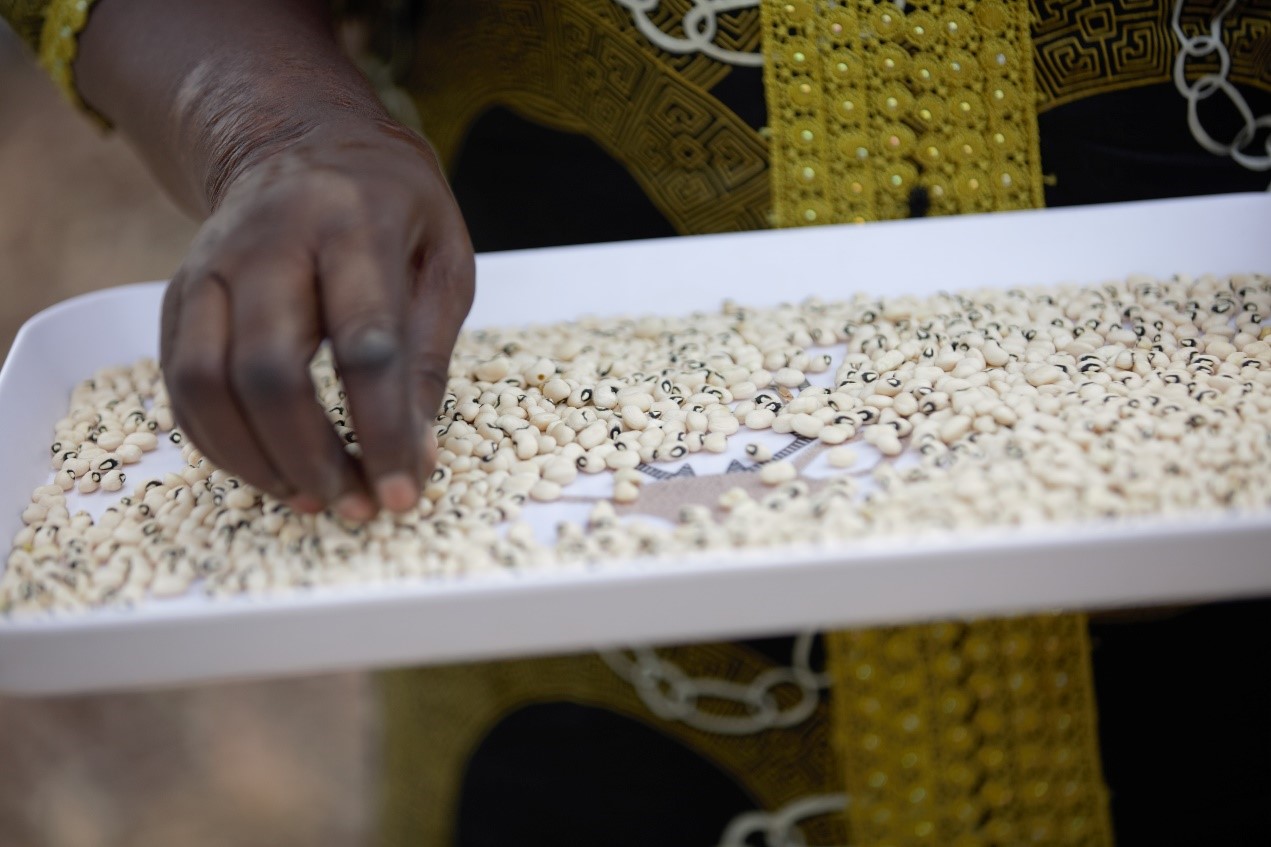Biotech crop approvals should be science-based, timely, and predictable

[Nairobi, Kenya, October 2025]: Experts in the agricultural sector have called for the removal of regulatory barriers to accelerate the adoption of agricultural technologies and enhance farmers’ productivity in Africa. They emphasized the need for science-based, timely, and predictable approval processes that ensure safety while fostering an enabling environment for the adoption of agricultural solutions across Africa.
The call was made at an event dubbed The Funders & Frontiers: Breeding next-generation crops for Climate change Mitigation and adaptation, which took place in October 2025.
The event was part of the Funders and Frontiers series organized by Clim-Eat, the UK’s Foreign, Commonwealth & Development Office (FCDO), and the Bezos Earth Fund, which fosters learning and collaboration among funders of food systems innovations.
While addressing the meeting, Dr. Canisius Kanangire, Executive Director of AATF, noted that an enabling policy environment, robust seed systems, and a vibrant private sector ecosystem are critical for the adoption of new crop varieties in Africa.
Dr. Kanangire noted that the decline in crop yields, the spread of pests and diseases, the increased vulnerability of pastoral livelihoods, and the volatility of food prices are among the key challenges affecting Africa’s food systems.
“In recent years, we have seen technological advancements towards enhancing the productivity of key staple crops, including maize, rice, cowpeas, cassava, potatoes, and bananas. What has clearly emerged is that with technology use, there is a significant difference in crop performance and farmer gains,” he said.
Dr. Kanangire noted that Nigeria has released a genetically modified cowpea variety resistant to the pod borer pest, capable of yielding up to five times more than conventional varieties. The new variety also reduces pesticide use by farmers from eight applications per cropping season to only two, contributing to better yields, lower production costs, and healthier livelihoods.
He further stated that Bt maize hybrids capable of mitigating the effects of climate change, particularly moderate drought and losses caused by pests such as stem borers and fall armyworm, have been released in Nigeria. These hybrids safeguard farmer yields and product quality, delivering yield gains of between 54 percent and 80 percent compared to conventional varieties.
“AATF is working with partners to scale up improved climate-smart maize varieties and complementary agronomic practices in various countries across Africa,” he added.
According to Dr. Kanangire, biotech success in Africa will depend on political leadership and an enabling environment necessary for the adoption of these innovative products, and good science and regulatory compliance. “We call upon our political leaders to act with vision and courage. Africa currently spends $35 billion a year importing food, a bill that could soar to $110 billion by 2050 if we don’t change course,” he noted.
The Funders and Frontiers sessions convene key funders and experts to explore opportunity areas for the next generation of crops, and how these innovations can be developed and distributed to accelerate climate progress while supporting farmer livelihoods and food security.
The meeting noted the need to involve farmers in the research and development process through demonstrations and trials to help build trust over time. In addition, participants agreed that understanding the decision-making process at the community and household levels is essential for effective brand development and delivery mechanisms.
*********
For further information, please contact: George Achia, Communications Officer, East and Southern Africa, AATF; g.achia@aatf-africa.org, +254 785334163





















































































